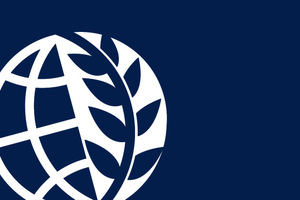
Three scholars at Notre Dame's Kroc Institute have won visiting fellowships for the 2009-10 academic year for research on Middle East conflict, economic sanctions, and political reconciliation. They will spend the year in Washington, D.C. and Virginia.
Asher Kaufman, assistant professor of history and peace studies, received a Woodrow Wilson Center fellowship for his project "Contested Frontiers: Conflict and Potential Resolution in the Syria, Lebanon, Israel Tri-Border Region." He joins 23 other Woodrow Wilson fellows from the United States, Australia, Bulgaria, Canada, Denmark, Israel, United Kingdom, and Uzbekistan.
George A. Lopez, the Rev. Theodore M. Hesburgh, C.S.C., professor of peace studies, was awarded a Jennings Randolph Senior Fellowship from the United States Institute of Peace. He is writing a book titled "Can Sanctions Be Saved?" for which he plans to interview 150 treasury personnel, United Nations officials, bankers, and others in the private and public sector.
Daniel Philpott, associate professor of political science and peace studies, received a visiting fellowship from the Institute for Advanced Studies in Culture at the University of Virginia. The grant will support the completion of his monograph, "Just and Unjust Peace: An Ethic of Political Reconciliation," which confronts the challenges faced by societies overcoming a past of war, dictatorship, and human rights violations.
“During a period of global financial tumult, ongoing border disputes and civil wars, nuclear proliferation and terrorism, research into the causes and consequences of deadly conflict is essential to the prevention of war and the peaceful reconstruction of war-torn societies, said Scott Appleby, John M. Regan, Jr., director of the Kroc Institute.
“Prestigious fellowships such as the ones awarded to our three peace studies scholars—a historian of the Middle East, a political scientist and security and human rights expert, and a leading theorist of the ethics of international relations—speak eloquently to the fact that addressing the world’s problems requires multiple lenses of analyses and the contributions of several academic disciplines.”
Contact: Joan Fallon, (574) 631-8819, jfallon2@nd.edu